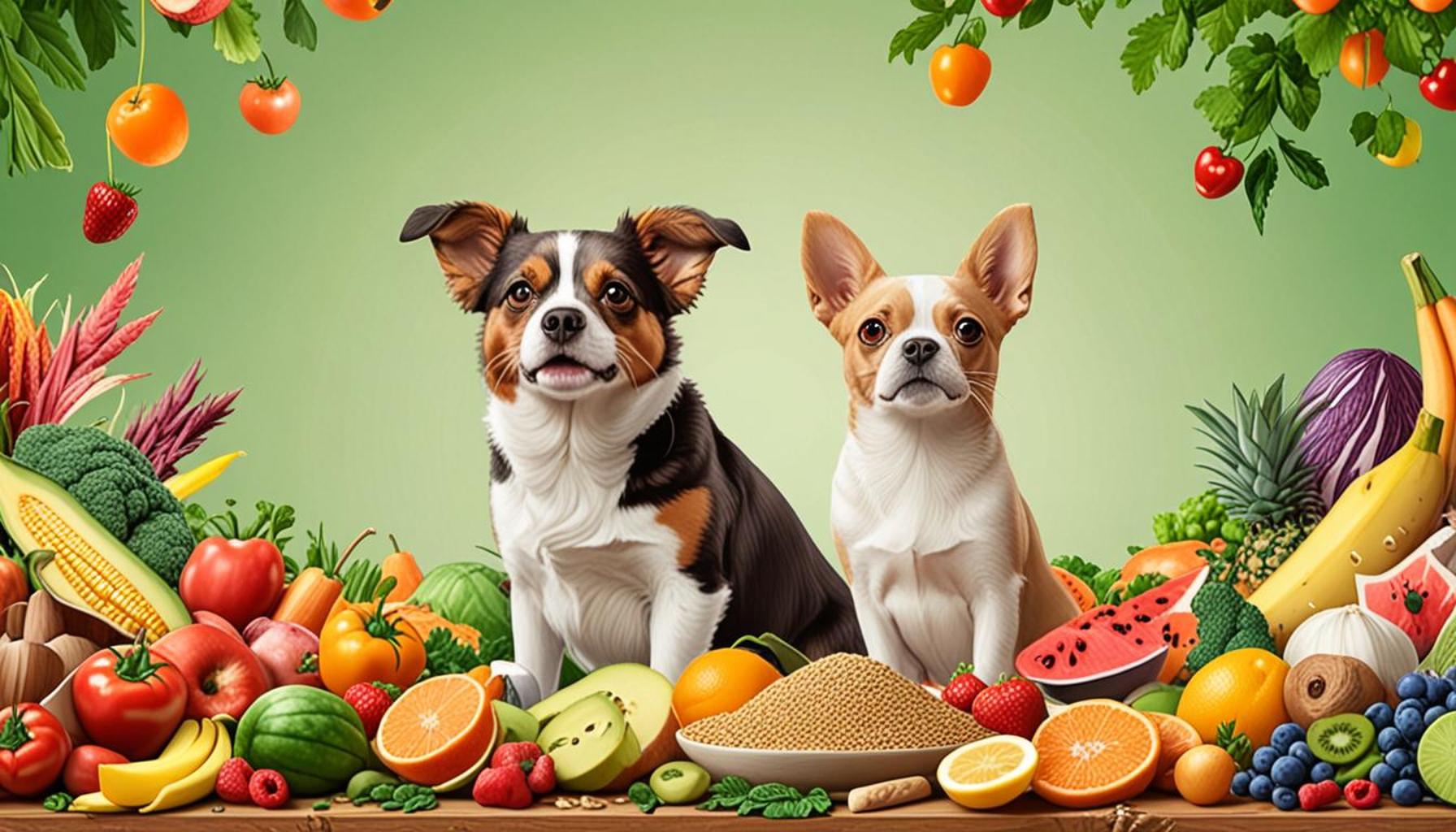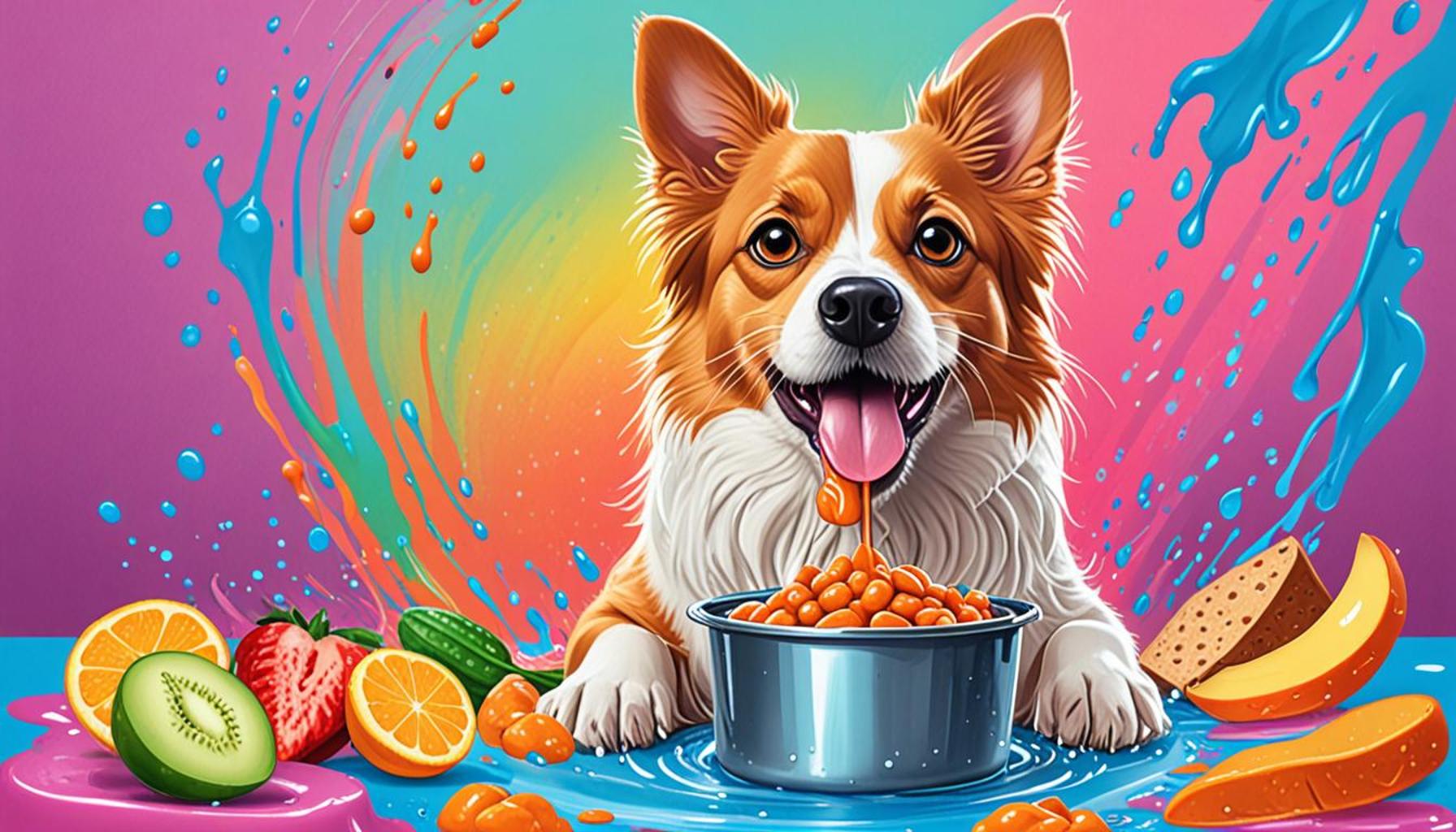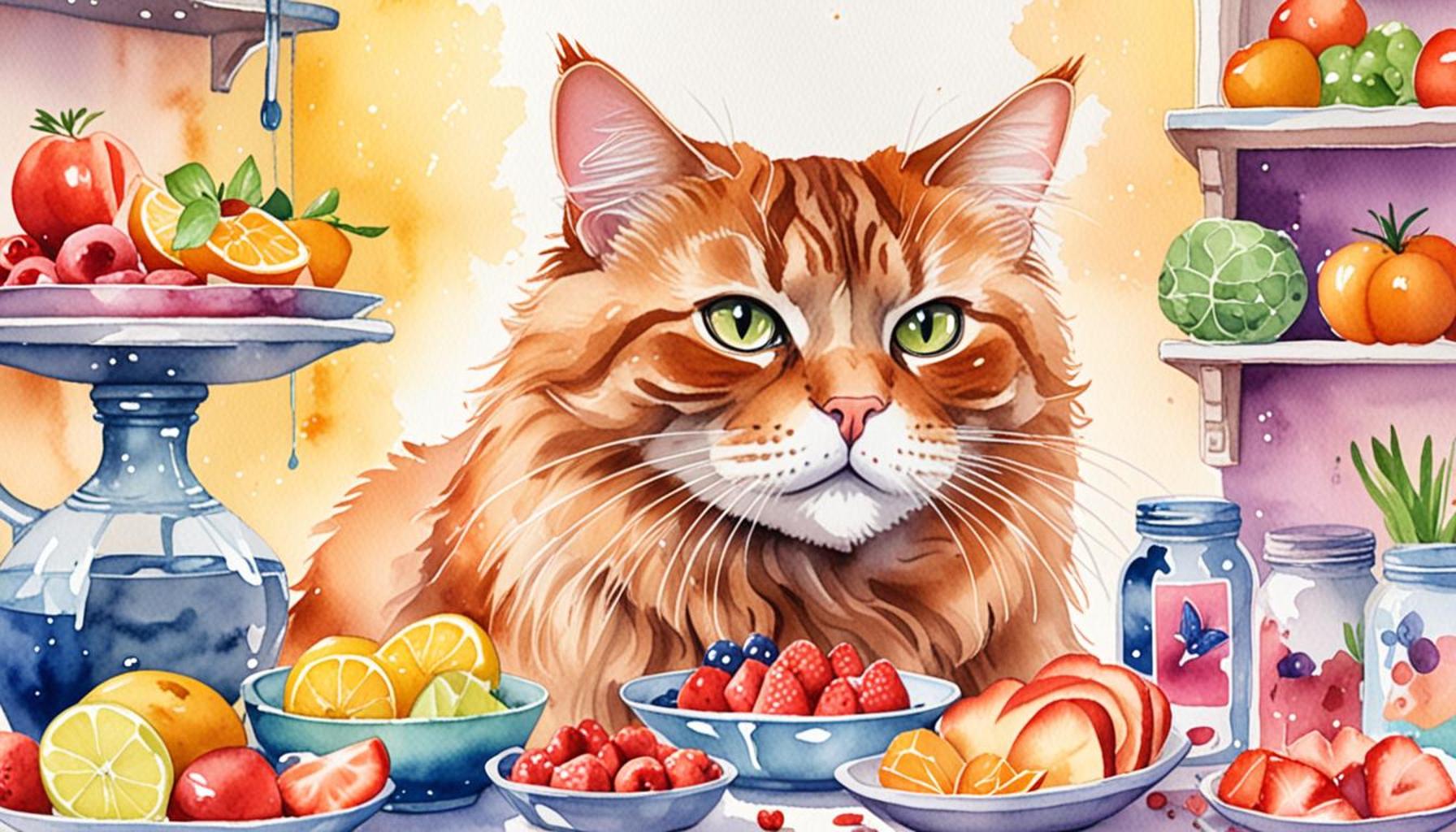The Importance of Hydration in Pet Nutrition
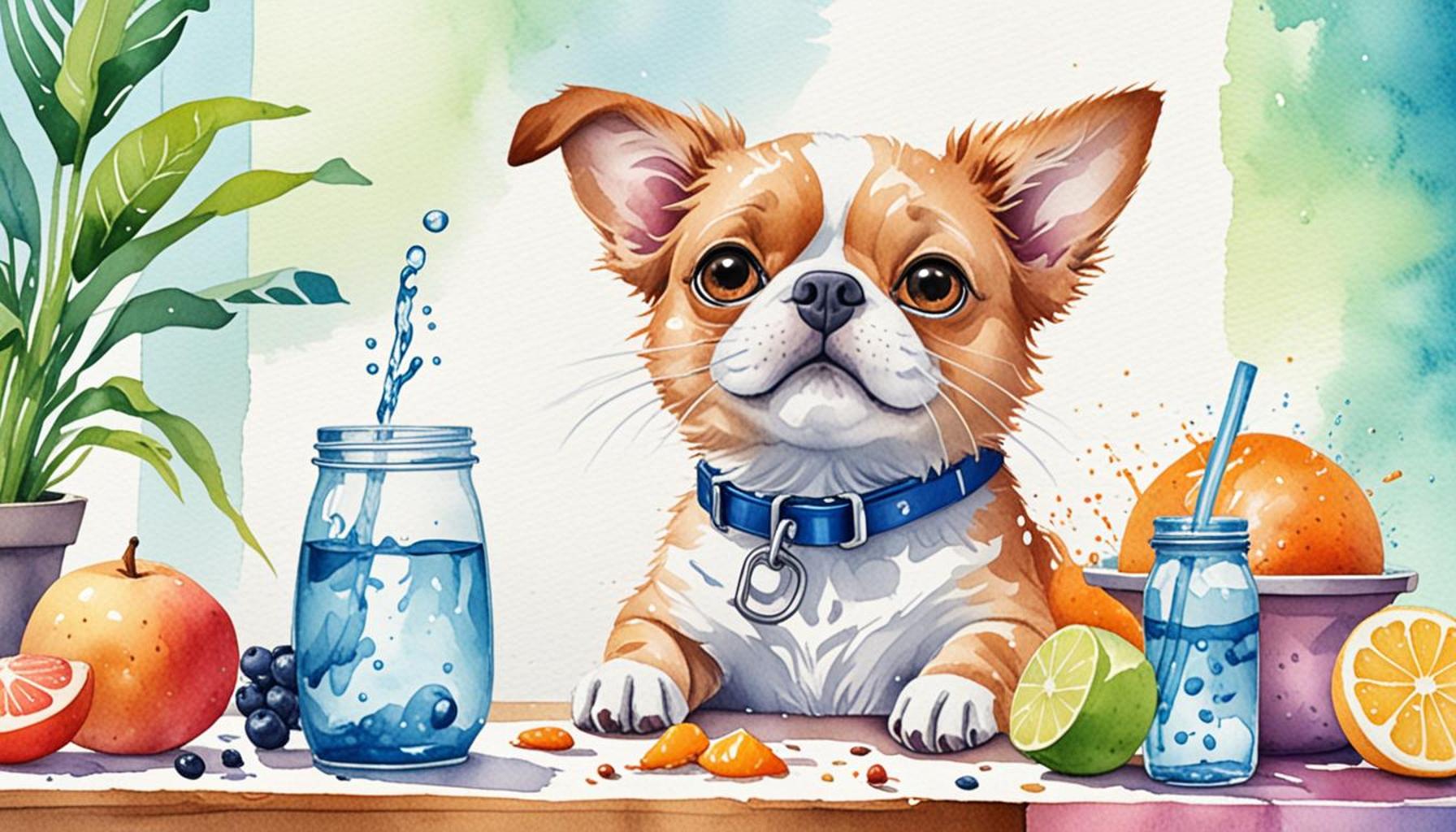
Understanding the Importance of Hydration for Pets
Hydration is often overlooked in discussions about pet nutrition, yet it plays a crucial role in maintaining health and well-being. Just like humans, pets require a sufficient amount of water daily to support vital bodily functions. Ensuring that pets receive adequate hydration is essential not only for their immediate health but also for their long-term vitality.
Body Temperature Regulation
Water helps keep pets cool, especially during hot weather. When pets engage in physical activities or are exposed to high temperatures, they can easily become overheated. Unlike humans, who sweat to cool down, pets primarily rely on panting and increased water intake to regulate their body temperature.
For example, a dog that is active outdoors during summertime may need increased water intake to prevent heatstroke. Pet owners should observe their pets for signs of overheating, such as excessive panting, drooling, or lethargy.
Organ Function
Critical processes in the kidneys and liver rely on adequate hydration. The kidneys filter waste from the blood, while the liver helps in metabolizing nutrients. Without sufficient water, these organs cannot function effectively, leading to potential health complications. Dehydration can lead to kidney stones or even kidney failure over time. Regular intake of fresh water supports the filtration process, ensuring that these organs can eliminate toxins efficiently.
Nutrient Absorption
Water aids in digesting food and absorbing essential nutrients. Adequate hydration facilitates the breakdown of food in the digestive tract, allowing pets to derive maximum benefit from their meals. For instance, a dry kibble diet might require pets to drink more water compared to a moist, canned food diet that already contains substantial liquid. Understanding the moisture content of your pet’s food is essential in ensuring they are adequately hydrated.
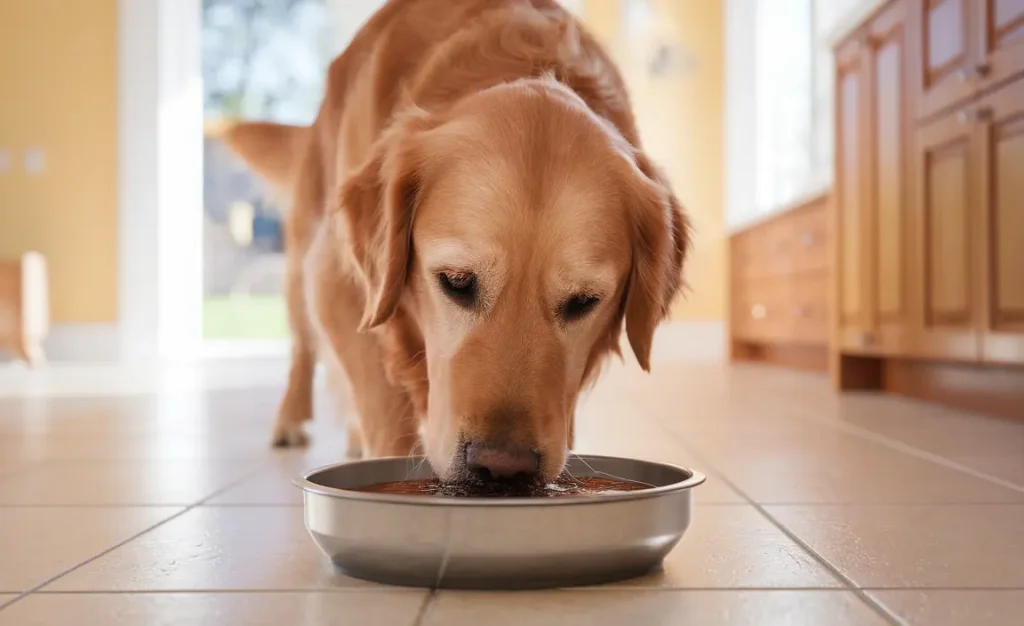
Interestingly, many pet owners assume their furry friends are drinking enough water. However, various factors, including diet, activity level, and weather, can affect a pet’s hydration needs. Moreover, a study in the United States indicates that up to 60% of pets might not receive adequate hydration. This startling statistic can lead to serious health issues over time, like urinary tract problems and chronic kidney disease, which are increasingly common among pets.
To promote optimal hydration, pet owners can take several steps. Offer fresh, clean water daily in multiple easily accessible locations, or consider providing a pet water fountain, which encourages drinking. Monitoring water intake and being mindful of your pet’s dietary choices can also make a significant difference. Adding wet food to your pet’s diet or incorporating water-rich vegetables (like cucumber or celery) can enhance their hydration.
Now that we’ve explored the importance of hydration in pet nutrition, it is essential for pet owners to continually assess and improve their pet’s water intake. By doing so, we not only support their current health but also contribute positively to their overall quality of life. Understanding these components of hydration can empower pet owners to make informed decisions that enhance their furry companions’ welfare.
DIVE DEEPER: Click here to learn why socialization matters for your pet
Hydration: A Cornerstone of Pet Health
In the realm of pet nutrition, hydration is undoubtedly one of the most crucial yet underestimated components. While diets rich in nutrients and quality ingredients often gather the most attention, water intake is equally paramount in safeguarding and enhancing your pet’s health. Whether you have a playful puppy, a seasoned feline friend, or any other furry companion, understanding the dynamics of hydration can pave the way for a happier, healthier life.
Dehydration Risks and Signs
Dehydration can manifest silently, making it essential for pet owners to stay vigilant. Sometimes, pets may not show overt signs of thirst, leading to chronic dehydration over time. Various factors can exacerbate this condition, including:
- High temperatures and humidity levels
- Increased physical activity
- Underlying health issues such as diabetes or kidney disease
- Mainly dry food diets
Some common indicators of dehydration in pets include:
- Dry gums and lethargy
- Loss of skin elasticity (the skin won’t spring back when gently pulled)
- Sunken eyes
- Monitoring urine output: less frequent urination is often a crucial sign
Pet owners should leverage these signs to address hydration proactively, as prevention is always preferable to intervention.
The Role of Hydration in Metabolism
Water is integral for metabolic processes, influencing everything from food digestion to cellular function. In fact, it acts as a medium for many biochemical reactions essential for converting food into energy. Without adequate hydration, a pet’s metabolism can slow down, leading to issues such as obesity or malnutrition, which can endanger their health in the long run.
Studies have shown that even mild dehydration can hinder metabolic efficiency. A research paper published by the University of California found that pets with consistent access to fresh water showed improved energy levels and overall mood compared to those with restricted water supply. This evidence reinforces the notion that maintaining hydration can significantly enhance a pet’s quality of life.
Different Hydration Needs
Each pet has unique hydration needs that vary widely based on their size, age, breed, and health status. For instance, larger breeds typically require more water than smaller ones due to their higher metabolic rates. Similarly, younger pets and those with active lifestyles need closer monitoring regarding hydration levels. The American Animal Hospital Association suggests that a general guideline for daily water intake is approximately 1 ounce of water per pound of body weight. This benchmark can help mitigate the risks associated with inadequate hydration.
In addition, altered dietary patterns must be considered. For example, pets consuming solely dry kibble diets may need an increased water intake compared to those who eat wet food, which contains significantly more moisture. Understanding these nuances can empower pet owners to cater to their companions’ specific hydration demands.
The significance of proper hydration cannot be understated: it affects every aspect of your pet’s health, contributing to everything from energy levels to digestive efficiency. As responsible pet owners, we must prioritize hydration as an indispensable aspect of pet nutrition, setting the foundation for a healthy and fulfilling life.
The Importance of Hydration in Pet Nutrition
Proper hydration is a crucial yet often overlooked aspect of pet nutrition. Just as in humans, the water intake of pets directly influences their overall health and well-being. Dehydration can lead to a plethora of health issues, including kidney dysfunction, urinary tract problems, and impairments in bodily functions. In this piece, we delve into why hydration is fundamental for our furry companions.
The benefits of adequate hydration extend beyond just quenching thirst. Water is essential for the digestion and absorption of nutrients. It aids in the metabolism, lubricates joints, and maintains body temperature. As pet owners, it’s vital to ensure that our pets have access to fresh and clean water at all times. One interesting statistic to consider is that dogs can lose up to 20% of their body weight through water loss before serious health risks develop. This emphasizes the importance of consistently monitoring their water intake.
Moreover, the type of pet food can influence hydration levels. Dry kibble, often high in carbohydrates, requires an ample water intake to aid digestion. Conversely, wet food can improve hydration due to its higher moisture content. Each pet is unique; thus, personalizing their diet can greatly enhance their health. It’s also crucial to understand that factors such as age, climate, and level of activity significantly affect a pet’s water needs.
| Hydration Benefits | Key Considerations |
|---|---|
| Supports overall health | Hydration plays a vital role in preventing health issues. |
| Aids in digestion | Necessary for the digestion of food and absorption of nutrients. |
Proper hydration practices can greatly improve your pet’s quality of life. By understanding their specific needs and encouraging fluid intake, you can help ensure they remain happy and healthy.
DISCOVER MORE: Click here to learn about how the environment affects your pet’s behavior
Hydration’s Impact on Pet Behavior and Vitality
When discussing pet nutrition, it becomes apparent that hydration goes beyond physical health; it plays an integral role in influencing behavior and overall vitality. A well-hydrated pet is more likely to display positive and engaging behavior, establishing a connection between hydration and their emotional well-being. For many pets, hydration can be the catalyst for reducing stress and anxiety levels. Pets that are chronically dehydrated may exhibit signs of irritability or lethargy, impacting their capacity to interact positively with their environment, their owners, and even other pets.
Hydration and Mental Health
Mental well-being in pets is often overlooked, yet it is a critical component of their overall happiness. Dehydration can lead to cognitive decline and decreased responsiveness in pets, particularly in older animals. Hydration helps maintain optimal brain function, assisting in decision-making, learning, and memory retention. Research indicates that pets who maintain adequate hydration levels are less prone to exhibit signs of anxiety and aggression, essentially fostering a more harmonious home environment.
Moreover, ensuring your pet is hydrated can aid in mitigating behavioral issues. A well-hydrated pet is often more lively, playful, and responsive to training. This is particularly important for young pets. In a study from the American Veterinary Medical Association, pet owners noted a significant correlation between consistent water access and reduced behavioral issues in puppies. Pets that are engaged and energetic often see improved relationships with their owners and better overall behavioral outcomes.
Hydration as a Preventative Measure
Preventative pet care is not just the responsibility of veterinarians; pet owners play a crucial role as well. By monitoring hydration levels and consciously ensuring your pet has access to fresh water, you can thwart many health issues before they arise. Common conditions associated with dehydration include kidney stones and urinary tract infections, both of which can escalate to serious health concerns if not addressed promptly. For instance, a study conducted in Ohio demonstrated that consistent hydration was linked to a 50% reduction in urinary tract infections in pets, substantiating the importance of proper water intake.
Innovative Hydration Solutions
With technology evolving, the tools available to pet owners for monitoring hydration levels have become more advanced. From smart water bowls featuring built-in hydration trackers to app-connected water dispensers that monitor your pet’s drinking habits, taking control over your pet’s hydration has never been easier. These innovations empower pet owners to clearly understand how their pets are hydrating, allowing them to make adjustments as necessary.
Additionally, incorporating high-moisture foods into your pet’s diet can serve as an effective and appetizing way to enhance hydration. For example, high-quality wet food or homemade meals can increase your pet’s overall fluid consumption while catering to their taste buds. Engaging with pet nutritionists can provide valuable insights into meal planning that prioritizes both hydration and nutritional balance.
Ultimately, in the world of pet nutrition, prioritizing hydration is not just about preventing dehydration, but fostering a lifestyle that promotes overall health, energy, and emotional stability. As you continue to explore ways to enhance your pet’s well-being, remember that hydration should always be at the forefront of your efforts.
DIVE DEEPER: Click here to uncover more about pet behavior
Conclusion: Prioritizing Hydration in Your Pet’s Life
In the ever-evolving landscape of pet nutrition, hydration stands as a fundamental pillar that is often overlooked. As we have discussed, ensuring adequate water intake is not merely a preventive measure against dehydration; it is essential for fostering overall health, vitality, and emotional well-being in our furry companions. Hydration influences not only physical health and prevents serious medical conditions but also enhances behavior and mental health, creating happier and more engaged pets.
From improved cognitive function to reduced anxiety levels, the benefits of proper hydration extend deep into the emotional fabric of our pets’ lives. The innovative hydration solutions available today, such as smart water dispensers and high-moisture diets, make it easier than ever for pet owners to monitor and enhance their pets’ water intake. The implications are clear: a well-hydrated pet exhibits greater energy, improved sociability, and better overall behavior, enriching the bond with their human family.
As responsible pet owners, the call to action is straightforward: make hydration a priority in your pet’s daily routine. Regularly assess their water intake, explore nourishing food options, and invest in tools that simplify hydration management. By doing so, you promote not just physical health, but also a joyful and emotionally balanced life for your pet. In the quest for optimal pet nutrition, remember that a drink of fresh water can be the simplest yet most effective way to nurture your furry friend’s health and happiness.

